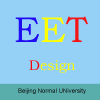-
Functional Context Education
普通类 -
- 支持
- 批判
- 提问
- 解释
- 补充
- 删除
-
-
Introduction
LITERACY and other basic skills are effectively integrated with content learning through the Functional Context approach to education. This provides a valuable framework for the development of effective instructional materials for many adult learners.
-
Overview
The principles behind Functional Context Education (FCE) emerged during World War II as a result of training programs designed to prepare marginally literate recruits in the most efficient manner possible. Over time, the theory underlying this practice has more fully developed out of the field of cognitive science. The research and writings of Thomas G. Sticht (1975) have had an immensely significant impact on how this theoretical basis has been implemented into more recent efforts in adult literacy instruction.
General notions in education have traditionally held that literacy is a skill one must learn in one setting, then apply in others. The primary focus of FCE has been to promote improvement in literacy, as well as other basic skills, within instructional contexts that are highly relevant and useful to the learner. This allows for teaching methods that are optimal for adult learners; most adults are not motivated to learn if the content of instruction is not meaningful.

Many adult literacy programs traditionally use decontextualized learning materials, resulting in decreased motivation for the learner.FCE differs from traditional adult education philosophies and practices in that it grew out of cognitive psychology and concepts of human information processing. Research in this field has shown that people acquire new knowledge and skills by building upon their own existing knowledge base. Through FCE, these findings have led to literacy programs that hold a strong job-related focus and strive to improve transfer of learning from literacy programs to job training.
-
Applications
The Functional Literacy (FLIT) Program applied theoretical principles of cognitive science to adult literacy and technical training in the U.S. army. The objective was to improve literacy skills while increasing the learner’s body of knowledge on a specialized technical domain. Evaluation of the program showed that the job-linked reading program produced three times the amount of gain in a six week program as did the general reading.

Achievement data for the FLIT program including pre- and-post-test data on general reading tests and job related reading task tests. As indicated in the chart, the job-linked reading program produced three times the amount of gain in the six week program as it did in general reading.
There are many examples of vocational programs that successfully combine basic skill instruction with job-related content. Thomas Sticht helped create instructional materials that combine reading and math education within the context of healthcare occupational content. Other work programs integrate a wide variety of job-related content and skills with literacy instruction- office tasks, technical and automotive repair, kitchen skills, and even parenting skills are examples of such content domains.
Most adult learners are highly unlikely to invest time in educational endeavors unless beneficial outcomes are very apparent. This factor is coupled with the reality that social stigmas are commonly associated with ’remedial’ literacy programs. FCE provides opportunities for adults to improve reading and other skills within contexts that are conducive to their career and social goals.

Implementation of Functional Context methods has allowed for development of instructional materials that promote literacy skills and
are appropriate for adults. More information on these materials
-
Author
Amy Goldberg
-
-
- 标签:
- literacy
- skills
- functional
- education
- context
- reading
- fce
- instructional
- program
- programs
- adult
-
加入的知识群:



学习元评论 (0条)
聪明如你,不妨在这 发表你的看法与心得 ~